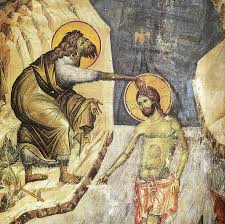Love
God – unfeeling and does nothing; passive and remote, irrelevant to everyday life on earth. So many people think of God in this way. How wrong they are! In reality, God has loved us and continues always to love us. How amazing to know that Almighty God with his absolute holiness and perfection actually loves people like us! What a sense of security, comfort and well-being his love can bring us! My wonderful wife knows me through and through; she knows my foibles and weaknesses, but continues to love me. Our children and grandchildren also have known us throughout their lives and know us rather well, but persist in loving us so much. The assurance, joy, security and contentment this brings is heart-warming. Of course God knows and understands us with all our sin and inadequacies far better even than our closest family. In his Gospel too John particularly emphasizes this life-changing, affirming love. Both here and in his letters he frequently refers to love, more than any other book in the Bible. God loves us, so we are called to love him, love our fellow-believers and indeed to love all people. God’s love pervades the whole of life. It should characterise all our relationships as God’s people. God’s love is fantastic – it changes everything and can bring light to a dark world.

The World
Just like in chapter one (1.9/10), John repeats the word “world” four times (3.16/17), thus underlining the amazing extent of God’s love. His love stretches out beyond the borders of Israel to reach all peoples everywhere. Of course he continues to love his own chosen people Israel, but John underlines the universal nature of God’s love. He even loves the Romans who had conquered Israel with unbelievable ferocity and cruelty, destroying the temple and city of Jerusalem. And it was the Romans (not just the Jews!) who had crucified the Messiah Jesus. God’s all-embracing love not only extends to the furthest corners of the world, but also even reaches out to our enemies, to the hated or despised. Following the Lord, we too are called to loving mission into all the world.

He Gave
When I was a small boy I used my precious pocket-money one week to buy a small trinket for my mother. She was deeply touched and kept that little dish for years. I have often advised Asian students at All Nations Christian College whose parents are strongly opposed to their faith in Jesus – ‘send your parents a gift from time to time!’ A gift demonstrates love. Love delights to give. God himself “so loved that he gave”. And what a gift! He sacrificed his only-begotten son. God loved us all so deeply that nothing, nobody could be too costly.
Why?
God’s purpose in sending his only son to the world stands clearly before us. God longs for us all to have eternal life and not to be destroyed (3.16). That new God-given life begins now and continues on into eternity. So we ‘have’ (present tense) eternal life already, but we look for its perfection in the glory of the future.
Just as John repeated the word “world” for emphasis, so also he now repeats the word “believe” four times (3.16-18). God’s love is universal, but his gift of eternal life comes only to those who believe in Jesus. When speaking of ‘believing in Jesus’, John’s often-repeated use of the preposition eis/into indicates that such faith in Jesus means constant movement into ever-closer relationship with him. John’s eis/into relates closely to his use of pros/towards (translated as ‘with’ in 1.1 and as ‘into’ in 3.20). He calls us to trust Jesus more and more in an ever-closer relationship as we commit our lives to him and to his service.
Although Jesus in his absolute purity and sinless holiness stands in sharp contrast with the unbelieving world whose “deeds were evil” (3.19) and who “loved darkness instead of light”, he did not come with the purpose of condemning the world (3.17). He came in love in order to give and to save. And the fruit of our faith shines with good works which stem from our being ‘in God’ (3.21). ‘Doing the truth’ and ‘coming towards the light’ (3.20/21) depend on God working by his Spirit in us – everything positive in our lives comes from God, not just from our own determination.
Living as we do in the so-called ‘post-truth society’, John’s often-repeated use of ‘truth’ speaks relevantly into our contemporary world. We desperately need truth and therefore trustworthiness in our everyday living, relationships and speech. No wonder John in later chapters will commonly call the Holy Spirit ‘the Spirit of Truth’!

P.S. In speaking of the necessity of faith in Jesus as the condition for God’s gift of eternal life and salvation, we cannot but struggle with the question of pluralism and the Christian attitude to those of other faiths. In this context you may find two of my books relevant: “What about other Faiths?” (Hodder) and “One Way – Christian mission in a pluralist world” (Interserve/Kitab Publishers)


















Recent Comments